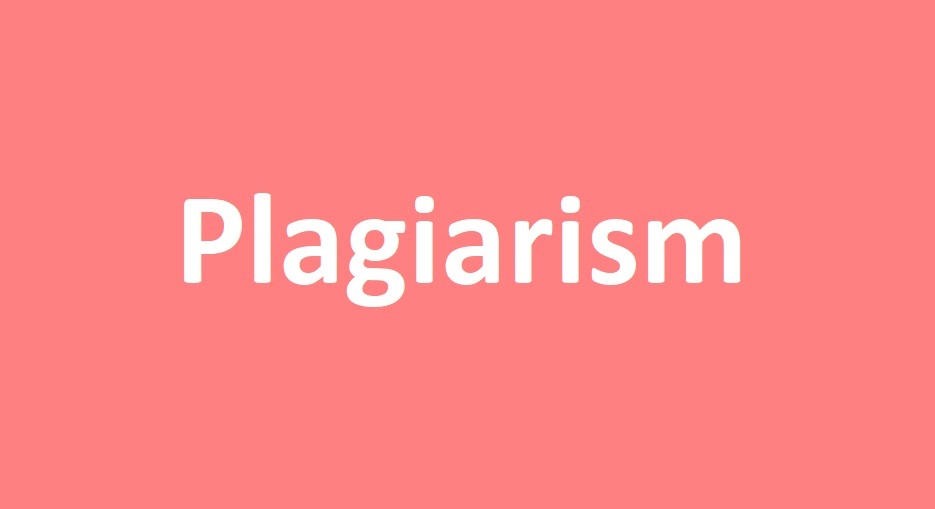Copyright infringement and plagiarism, are terms interchangeably used by people. In as much as both terms have similarities, they cannot be used as synonyms to each other because there are big differences between terms that make them non-synonymous. So how are these terms different? The difference in these terms begins by definition.
Definition of copyright infringement
In simple terms, copyright infringement is a violation of the rights of a person protected by copyright law. Copyright law was developed in order to give individual rights as the original creator of particular content and to protect it from the content scraper.
In copyright law, the copyright holder holds a set of rights that can only be exploited under the same law. These rights include; the right to derive other content basing on that same development, rights to copy and distribute content and rights to publicly display his work to the public.
A variety of activities can involve copyright infringing. Not only are written materials exposed to copyright infringement but also copyrighting another person’s play without his permission.
Making copies of the play without the original creator’s consent or even writing the script without authority. Copyright infringement is a very broad term but one that has its foundations in law that protects an individual against unlawful activities that go against his/her rights.
Definition of plagiarism
Plagiarism also has something to do with copyright laws and ethics that guard against infringement. In short, plagiarism refers to the copying and using other persons to work as your own without acknowledging the original person.
Differences between Copyright Infringement and Plagiarism
The main difference between the two terms lies in the fact that the moment one person steals or copies the work of other people whether or not they are covered by copyright law, that person is said to have committed fraud which is punishable by the law.
It is important to note plagiarism can be easily be detected by online plagiarism detection tools like Essaymojo.com. Although, plagiarism might be found guilty of the fraud offence but not for committing copyright infringement.
For copyright infringement, all cases are always understood from the act of plagiarism. Plagiarism can exist without copyright infringement particularly by stealing the works of others who do not have copyright license but fail to acknowledge them as main authors.
From a legal perspective, any individual who is found engaging in copyright infringement will, therefore, have to pay the owner whose work has been copied and distributed without consent.
Copyright laws are legal in many countries and those found to violate the law are prosecuted as the law demands. However, different countries have different rules but there are nations that are very stunning about infringing on copyrights- those who violate copyright laws are jailed on the spot.
Like mentioned before, plagiarism is different because of the stronger moral fibre in it which is not the case in copyright infringement. Every time you use someone’s idea and forget to acknowledge the person in your work.
You are simply committing plagiarism with or without your knowledge. In other instances, plagiarists decide to omit the names of the original authors and replace their names which makes them original thinkers or creators of the document.
Similarities Between Copyright Infringement and Plagiarism
On a surface level, copyright infringement and plagiarism have a great deal in common. Almost everything that is plagiarized can also be copyrighted because at the end of the day. The former deals with academic work among other types of similar nature, which also qualify for protection by copyright law.
Copying an article from encyclopedia webpage without attributing to the author, using a photo from a magazine published by another person or developing a blog post on a new site with similar ideas from a different author are all instances of copyright infringement and plagiarism.
In addition, being found guilty of plagiarism might have you in prison among other negative consequences. Just like copyright infringement, you might lose your credibility and all other developments you come up with will be treated with a shadow of a doubt.
Since everyone will think your new “work” could as well be plagiarized. Indeed, laziness might block your way into success. As a result, endanger a career you have worked so hard to build.
Bottom line
In as much as copyright infringement and plagiarism are used with a similar breadth with person whose material has been stolen. It is vital to remember that these terms should be used independently.
To bring out the larger difference, one can think of it in a manner that plagiarism always has two classes of victims while copyright infringement has one victim who is the holder of the copyright.
The two sets of victims in plagiarism involve the party that lied about the originality of their work and the holder of the copyright. Another simple way to look at both terms is with the assumption that plagiarism is ethical conduct as opposed to copyright infringement which is legal conduct.
Sometimes they overlap but one should never think that they are the same. Copyright discussions might come up at the mention of plagiarism and the other way round but this article comes as a reminder to the public that both terms are different in very many ways as listed above.








